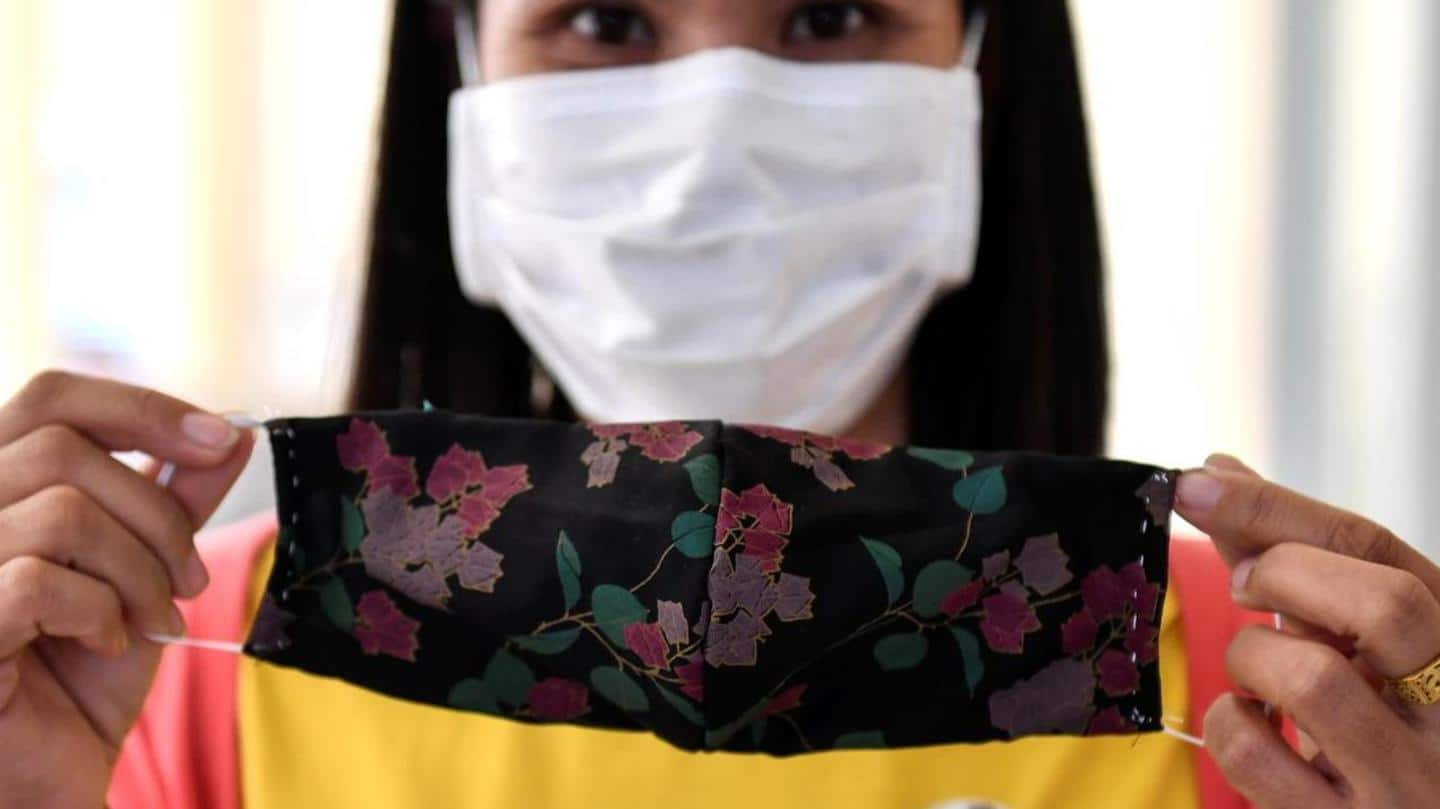
Surgical, N95, or cloth: Which mask should you be wearing?
What's the story
Since the beginning of the coronavirus pandemic, experts have repeatedly underlined the importance of physical distancing, frequently washing hands, and wearing face masks or coverings.
The benefits of wearing masks cannot be overstated, since they offer protection to the wearer and others around them, provided you wear the right one and do it correctly. So, which one is the right mask for you?
Surgical masks
Surgical grade single-use masks shield against large droplets
Surgical grade masks are fluid resistant and offer the wearer protection against large droplets, splashes, or sprays of bodily or other hazardous fluids, according to the United States' Centers for Disease Control and Prevention (CDC).
Such masks do not offer protection against airborne particles owing to the loose-fitting. However, there are video tutorials showing how the fit can be fixed using rubber bands.
N95
Surgical N-95 masks filter 95% of airborne particles
Meanwhile, surgical N95 masks offer greater protection against large droplets and small particle aerosols (only non-oil aerosols). They filter out at least 95% of airborne particles if worn correctly, which could be tricky for some people.
The masks also fit well around the face. However, the problem with N95 masks is that they are expensive, especially considering that they are single-use.
Issues
However, surgical masks aren't meant for general public
The issue with these surgical-grade masks is that they are not meant for public use. The masks are in short supply and are needed more in hospitals, particularly COVID-19 hospitals.
Further, these masks are disposable and have to be disposed of (properly) after each use. Hence, the masks, along with the PPEs, gloves, etc., are leading to a global biomedical waste crisis.
Information
Valved respirator N-95 masks are not recommended
Separately, as pointed out by the Indian government and experts, valved respirator N-95 masks are not recommended as they can allow unfiltered air to escape when a wearer exhales, defeating the purpose of wearing masks to prevent the spread of COVID-19.
Cloth masks
How good are cloth-based face masks/coverings?
As far as reusable cloth masks are concerned, even simple coverings offer some protection. Considering the cost, the supply shortage, and the waste factors, they are widely-recommended for the general public.
An analysis by scientists at University College London noted that reusable masks perform most of the tasks of single-use masks.
The Indian government has also detailed the process of making them at home.
Three-layer masks
What does the WHO recommend?
The World Health Organization recommends three-layer reusable masks.
The outermost layer of such masks should be made out of a hydrophobic material—such as polyester or polyester and cotton blend—to repel droplets or moisture.
The inner layer should be hydrophilic—such as cotton—to absorb droplets from exhalation.
The middle layer—ideally a strip of polypropylene fabric—should go into a pocket between these two layers.